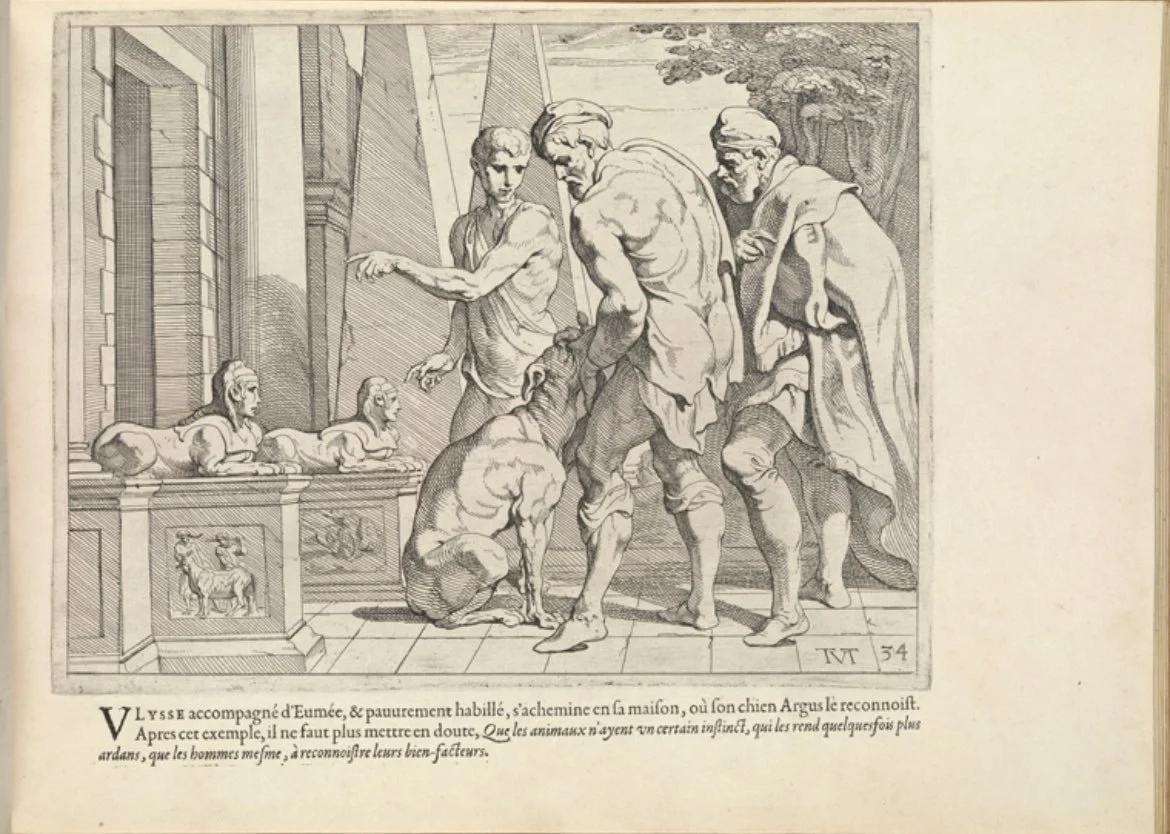SUITORS ON TRIAL
“No quarry he chased in the deepest, darkest woods could ever slip this hound. A champion tracker too! Ah, but he's run out of luck now, poor fellow ... his master's dead and gone, so far from home, and the heartless women tend him not at all.”
Art: Odysseus recognized by his dog, engraving by Thulden, Theodoor van (1606-1669).
Odysseus returns home at last—but disguised as a beggar. The halls of Ithaca, devoid of their king, have turned to chaos. And now, he gets a first-hand look at the lords who have betrayed him, and the consequences of their arrogance and entitlement. Oblivious to the fact that the reckoning is coming, the suitors gorge themselves with food and wine. Revenge is coming, but that’s not what this chapter is about. Here, Homer focuses on the strategy of the long game: observation, patience, and a different kind of test. When Odysseus returns, in a touching moment, his faithful dog, Argos, recognizes him right away. Neglected like Ithaca’s halls, the dog is old, weak, and covered in fleas. But the moment the great hunting dog recognizes his master, his tail wags one last time before he dies—a symbol perhaps that he has waited and guarded the palace faithfully and can finally rest. Inside the palace, the suitors lead with cruelty and arrogance, betraying their sore lack of character. Would they speak like this in the presence of Odysseus? Taken in by the disguise, they reveal their true identities by mocking him, jeering, and even assaulting him. Odysseus suffers it all, but not for long. He’s waiting for the opportune moment to strike, with strategy, and prudence. He’s not carried away by his emotions. The entire book is a reminder that how people treat those they assume to be powerless, when no one in authority watches, reveals everything about who we truly are. It raises questions for us as reader like, how does power reveal character or not? How do we balance watching and waiting with acting? And of course, why is it so important that Odysseus witness the suitors’ behavior with his own eyes, rather than relying on a second-hand account? In this book, Odysseus isn’t the only one being tested. The suitors are on trial—and judgment is coming.
-
Read the Odyssey online in the translation by Robert Fagles, or order the paperback.
Watch and learn about Books 17-18 of the Odyssey from Course Hero.
